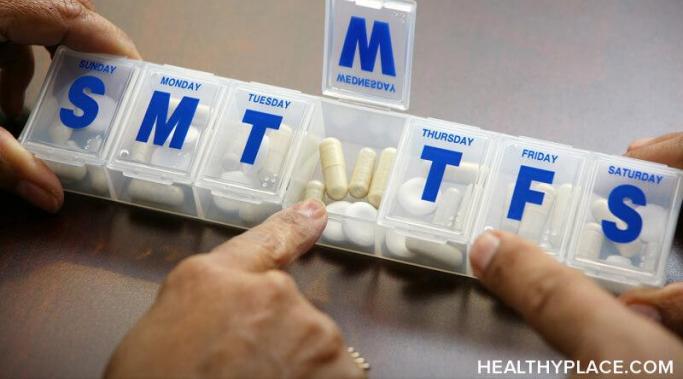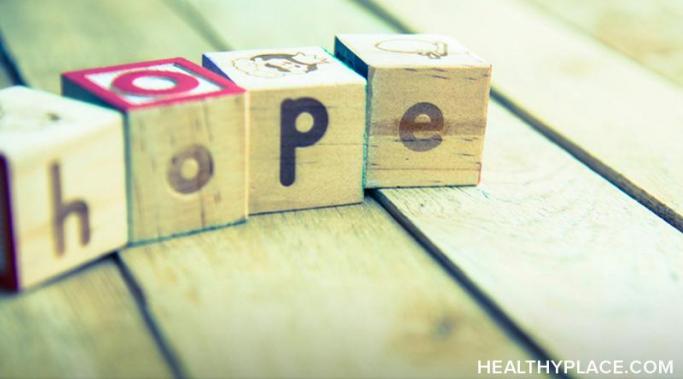The benefits of taking psychiatric medications include a reduction in troublesome mental health symptoms, but there's so much more to taking pills on a regular basis. When I was first prescribed psychiatric medication, I was definitely open to the idea, but I know that's not the case for everyone. Many people are skeptical, and the massive amount of stigma surrounding psychiatric medication certainly doesn't help. Here are five unexpected benefits of taking psychiatric medications I've experienced over a decade of taking pills every day.
Mental Health - Recovering from Mental Illness
Seeing a psychiatrist for the first time can be scary. But everyone around me knows that I'm very open about my experience receiving mental health treatment, so I talk about it. I work as an advocate for recovery. Many friends and family have asked me for insight when it comes to asking for help. I am always happy to provide encouragement and support, even if you're seeing a psychiatrist for the first time.
Surviving Halloween is not something I take lightly. I experienced visual and auditory hallucinations many years before receiving my schizoaffective disorder diagnosis. I thought I was receiving some sort of communication from a spirit world. Halloween is a difficult holiday for me even though I've been on medication for over a decade now. Here are some of my experiences and how I've coped.
I love being a mental health worker in Toledo, but I see our city named on all sorts of lists: "most stressed-out cities," "high violent crime rates," and even "least-livable cities."
Is it motherhood or mental illness that makes me so anxious about my child? My daughter is two and a half, and I'm learning that oftentimes toddlers can be more difficult to deal with than infants. She's very mobile and vocal, and I worry all the time. I know it's natural for parents to worry, but how much anxiety is normal? Just about any thought involving the future makes me nervous. I don't know if every mother feels the same, or if my mental illness intensifies my fears. Maybe you can help me decide if my fears are those of motherhood or mental illness.
My mental illness is part of my identity because of its huge impact on my life. When I was first diagnosed with schizoaffective disorder, I thought everything in my life could go back to the way it was before my symptoms got out of hand. I didn't know my life would take a sharp turn in a different direction.
Knowing how to give mental health first aid for suicide prevention is important for everyone, but we often don't know how to do it. After graduating from a community college in 2014, I accepted a position as a peer support specialist at a local mental health agency. Prior to this job, I worked at a group home, and the training was very similar -- first aid, CPR, and nonviolent crisis intervention. However, my new position also required Mental Health First Aid, a formal eight-hour course on how to respond to someone in crisis. The Mental Health First Aid intervention can be crucial in suicide prevention and getting someone the appropriate help they need.
My diagnosis validates my experience and makes my mental illness feel real. Schizoaffective disorder accurately describes my symptoms. I wanted a name and to know it can be treated.
Asking for mental health help is hard. Making the decision to move back home and get eating disorder treatment was difficult for me, even though I had known for a long time that something was wrong. I wasn't okay and I finally surrendered. I felt like it was my only choice. I've always been ambitious, and I needed to get my life back on track. At that moment, I wasn't able to do anything. Asking for mental health help was the best thing I could have done.
Pushing the limits of my mental health lets me live an ambitious life, but it comes with a cost. There's so much I want to do, but overloading my schedule sometimes means sacrificing my mental health. I don't mean having a full-on episode of my mental illness, but rather, dealing with breakthrough symptoms that sometimes occur when I'm feeling overwhelmed. I feel like I have to choose between living symptom-free or pursuing my ambitions, so I often find myself pushing the limits of my mental health.









